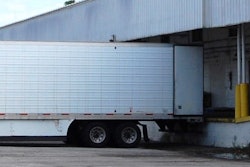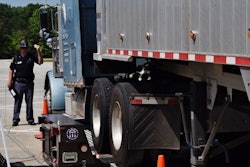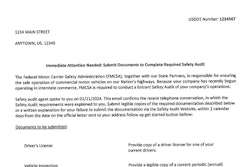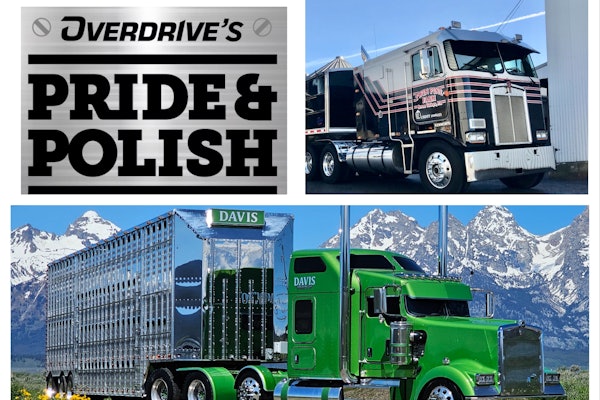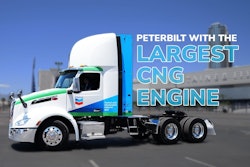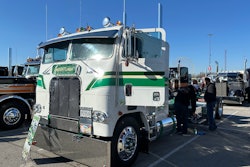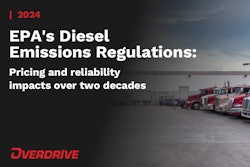Trucking news and briefs for Friday, June 14, 2024:
Finalizing 25% increase to UCR fees, FMCSA responds to small-carrier concerns
The Federal Motor Carrier Safety Administration on Monday, June 17, is publishing a final rule that will officially increase fees for the Unified Carrier Registration (UCR) Plan and Agreement for the 2025 registration year and beyond.
The agency issued the proposal in January to increase fees for the 2025 registration year by 25% above the 2024 levels. For one-truck owner-operators with authority, that means an additional $9 spent annually. Fleets with more than 1,000 trucks will pay $9,000 more than they did for 2024.
The increase follows a reduction in fees of an average of 37.3 percent over the two prior years, FMCSA noted.
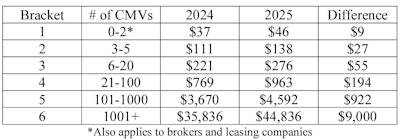 FMCSA's 25% increase to UCR Plan fees for 2025 are to make up for a shortfall in revenues after two consecutive years of decreased fees.
FMCSA's 25% increase to UCR Plan fees for 2025 are to make up for a shortfall in revenues after two consecutive years of decreased fees.
The plan's board provides fee adjustment recommendations to the Secretary of Transportation when revenue collections result in a shortfall or surplus from the amount authorized by statute. Fee adjustments are required by federal statute. The fee increases will produce revenues of $13 million that will enable the UCR Plan to provide the funds for the state revenue entitlements by covering the shortfalls in revenues resulting from decreases in the fees the prior two registration years, FMCSA added.
The agency noted the several commenters to its January proposal sought clarification on what the fees are used for, with others calling the adjustment “unwarranted” or “unexpected.”
FMCSA said the fees are used by participating states for motor carrier safety programs and enforcement, adding that it believes the upward adjustment -- the first since 2010 -- “is within a reasonable range.”
“Any amount short of these adjustments would impede proper operations of motor carrier safety programs, enforcement, or the administration of the UCR Plan and UCR agreement,” FMCSA said.
The agency also addressed concerns about the impacts of the fee increases on small businesses.
“Even for small carriers, the fee increase will amount to a minimal percentage of each carrier’s income,” the agency said, noting operators in the smallest bracket with 1-2 trucks will pay $9 more than last year, and those in the next bracket with 3-5 trucks will pay $27 more. “Regardless of the size of a carrier, this fee increase will likely represent, and be offset by, a very small percentage of annual revenue, and as such is not expected to impact the viability and longevity of motor carriers’ operations,” FMCSA added.
[Related: FMCSA proposes 25% hike for UCR fees]
Trucking conditions significantly improved in April
Conditions for trucking companies in April were significantly better than in March, according to the latest report from FTR.
FTR’s Trucking Conditions Index indicated a more hospitable environment for carriers in April, while still remaining negative, at a reading of -1.95, up from -7.25 in March. That’s the best reading since January, when the TCI was at -1.41.
Both freight rates and financing costs were less negative in April, and freight volume improved during the month, the firm noted.
“Better days are in sight for trucking companies, but the market still needs to work through the tough combination of too much capacity and sluggish freight demand,” said Avery Vise, FTR’s vice president of trucking. “The May payroll jobs figures for trucking offered some encouragement that this transition is underway, but a healthier situation for carriers will require continued rightsizing of capacity and stronger volume. We still do not expect consistently favorable market conditions for carriers until early next year.”
The index has not been positive in any month since early 2022 and likely will be mostly mildly negative for the rest of the year, though FTR says it could see some outlying positive readings as it moves closer to neutral territory.
As Vise noted, trucking industry employment bucked the overall economic trend in May. The Bureau of Labor Statistics’ monthly report showed trucking losing approximately 5,400 jobs during the month, while the overall economy gained 272,000 jobs. Despite trucking’s employment decline, the entire transportation sector gained nearly 11,000 jobs in May.
According to Motive’s Monthly Economic Report for June, 1,229 trucking companies exited the market in May, representing a slight increase from March but coming in 67% lower than January. May marked the third consecutive month with fewer than 2,000 exits, indicating that market contraction continues to stabilize and move toward positive growth, the firm said. May also saw 8,466 new carrier registrations, Motive noted -- the fourth consecutive month with more than 8,000 new entrants.
[Related: Keen fixed, variable cost understanding key to owner-operator success]
Idaho asks drivers to slow down in construction zone
The Idaho Transportation Department (ITD) is asking drivers to slow down and watch for construction crews on State Highway 55 south of Horseshoe Bend due to recent dangerous driver behavior in the area.
“There have been a couple of close calls in the work zone with drivers ignoring the flagging crews and the posted speed limit,” Project Manager J.D. Lewelling said. “Safety is our highest priority, so we really need people driving in the area to pay attention.”
Ongoing work includes milling and resurfacing the roadway for a smoother driving experience. Safety improvements include replacing guardrails, as needed, throughout the project area.
Construction activity is currently focused on the highway approximately four miles north of Avimor to just south of the Payette River Bridge in Horseshoe Bend. The project also includes constructing a bridge to convey both vehicle and pedestrian traffic under SH-55 at the north end of Avimor. This work is being funded by Avimor.
Construction is expected to be complete by this fall.
